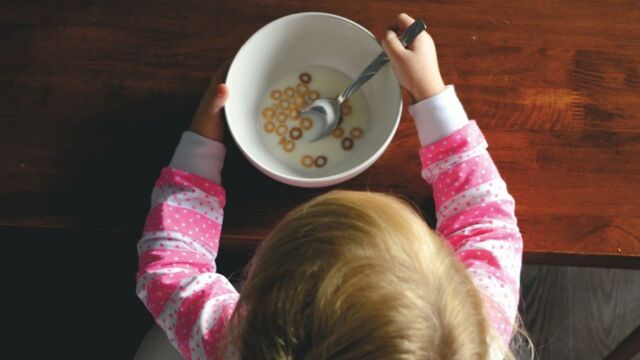The coronavirus has the ability to trigger side effects that last for weeks and sometimes even months. These long-term reactions are referred to as long COVID and they range from chronic fatigue, to shortness of breath, brain fog, dizziness, and the list goes on.
Discover our latest podcast
Parosmia
One such condition that has been increasingly debilitating young children is parosmia—the distortion of the sense of smell. Because of this, parents have been noticing that their children are becoming more fussy when it comes to eating food. Professor Carl Philpott from University of East Anglia (UEA) said:
We know that an estimated 250,000 adults in the UK have suffered parosmia as a result of a COVID infection.
But in the last few months, particularly since COVID started sweeping through classrooms last September, we've become more and more aware that it's affecting children too.
Most recently, the university revealed a severe case of parosmia which sent an 11-year-old child to the hospital. Dawn Kafi, the mother of Malisse, said:
It began with Malisse thinking his food had gone off. He says that food tastes like poo and sewerage and water tastes like rotten eggs.
What started as a change in his sense of smell snowballed into a condition which made him lose 2 kgs. Consequently, Malisse had to be rushed to the hospital after he got severely dehydrated.
Read more: More babies in England hospitals with Omicron variant
Doctor’s recommendations for children
To better guide parents with affected children, Fifth Sense—a charity that supports people who are affected by taste and smell disorders—has published an information sheet with advice on how to handle the condition. They’re suggesting that parents keep a diary to track the foods that trigger the child’s fussiness and also to record all the foods that are considered ‘safe.’ They added:
Encourage them to try different foods with less strong flavours to see what they can cope with or enjoy (e.g. vanilla, white chocolate, cheese, banana, pasta), these can help to soften the bad tastes.
For children that are older, the charity advises parents to start smell-training so that they can slowly restore their sense. They explained:
Consider smell training using smells that they are familiar with and are not parosmia triggers. In younger children this might not be helpful, but in teenagers this might be something they can tolerate.
Read more:















